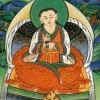Sign in to follow this
Followers
0

I see people are still misleading each other on Buddhism
By
RongzomFan, in Buddhist Discussion

By
RongzomFan, in Buddhist Discussion